What are Guitar Strings Made Of – A Guide by Zager

Did you know that the choice of guitar strings can make or break your playing experience? It’s true! Many guitarists must pay more attention to the right strings’ impact on their performance. Don’t worry because we’re about to embark on a thrilling journey through the mesmerizing world of guitar strings.
Picture this: a vast array of strings, each offering a distinctive feel and sound when caressed by your fingertips. They come in different materials, and their unique construction sets them apart. It’s like having a universe of sonic possibilities right at your fingertips!
Why settle for mediocrity when you can unlock your full potential with the perfect strings? Whether strumming an acoustic or shredding on an electric guitar, the correct lines can elevate your playing to a new level. Imagine the sheer joy of effortlessly coaxing out those sweet melodies or unleashing thunderous riffs that send shivers down your spine.
But here’s the thing: not all strings are created equal. Each type has its personality, suited for specific musical styles and guitar models. It’s like finding the missing puzzle piece that completes your musical masterpiece. From delicate fingerpicking to fiery solos, a string out there is destined to become your musical soulmate.
In this article, we’ll delve into the fascinating world of guitar strings. We’ll demystify the materials they’re made of, from the bright tones of nickel to the warmth of bronze and everything in between. We’ll explore the intricacies of their construction, unraveling the mysteries behind round-wound, flat-wound, and other string designs that shape your sound.
Types of Guitar Strings
Let’s take a deep dive into the world of guitar strings!
String material

Guitar strings are crafted from various materials, including steel, nickel, brass, bronze, and nylon. Each material offers distinct characteristics that shape the sound of your instrument. Within these materials, further subdivisions allow you to pinpoint the perfect strings to achieve your desired tone.
Steel and Nickel Strings
When making guitar strings for electric guitars, steel, and nickel are dynamic. Here’s something to think about; a steel wire coated in shiny nickel plating produces perfect harmony. But here’s the twist: you can also snag strings made entirely of pure steel or nickel, which have been gaining a pretty following lately.
Now, here’s where things get interesting. Steel and nickel each bring their unique sound to the table. Steel strings are like a burst of energy, delivering a sharp, lively tone to make your guitar sing.
On the other hand, nickel strings bring warmth, richness, and full-bodied goodness to your sound. Imagine a cozy fireplace on a chilly evening— that’s the kind of vibe nickel strings can give you.
So, why choose between these two musical flavors when you can have the best of both worlds? That’s where nickel-plated steel strings come in, offering you the perfect middle ground. They let you capture that bluesy, soulful sound that nickel brings while still cranking up the volume for rock, metal, or country jams that demand that extra punch.
So, finding the right strings is critical whether you’re strumming the blues or shredding like a rock god. Steel or nickel? The choice is yours, but remember, you can always find your sweet spot with nickel-plated steel strings. Let the music play, and enjoy the best of both worlds!
Brass and Bronze Strings
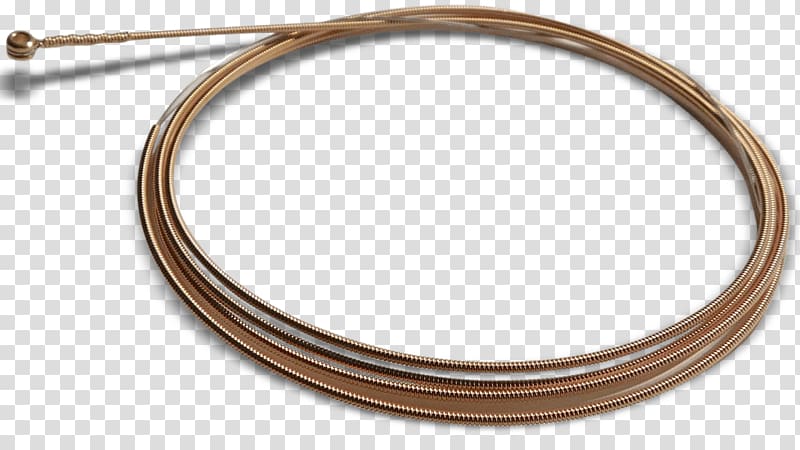
Brass and bronze strings offer an exciting twist to the world of steel-string acoustic guitars. You see, you often can choose between brass-plated or bronze-plated strings for these guitars.
Now, let’s dive into the distinctive sounds these strings bring. Brass-plated strings have a cutting edge to their sound, delivering a sharp and vibrant tone. However, it’s important to note that they tend to shine brightest on larger guitars, like those bigger than the OM size. If you use them on a smaller guitar, you run the risk of your sound sounding overly tinny.
On the other hand, we have bronze-plated strings, which offer a different flavor altogether. These strings deliver a smoother and warmer sound compared to brass. They are often the go-to choice for creating softer music pieces or when paired with small-bodied guitars.
So, the choice between brass and bronze-plated strings comes down to the kind of sound you’re after. If you’re aiming for a cutting and vibrant tone that suits a larger guitar, brass-plated strings are your go-to. However, if you prefer a smoother and warmer sound, especially for softer music or with a small-bodied guitar, bronze-plated strings will be your best bet.
Remember, the strings you choose can greatly influence the character and vibe of your music. So, explore the options and find the perfect strings that bring your guitar to life!
Nylon Strings
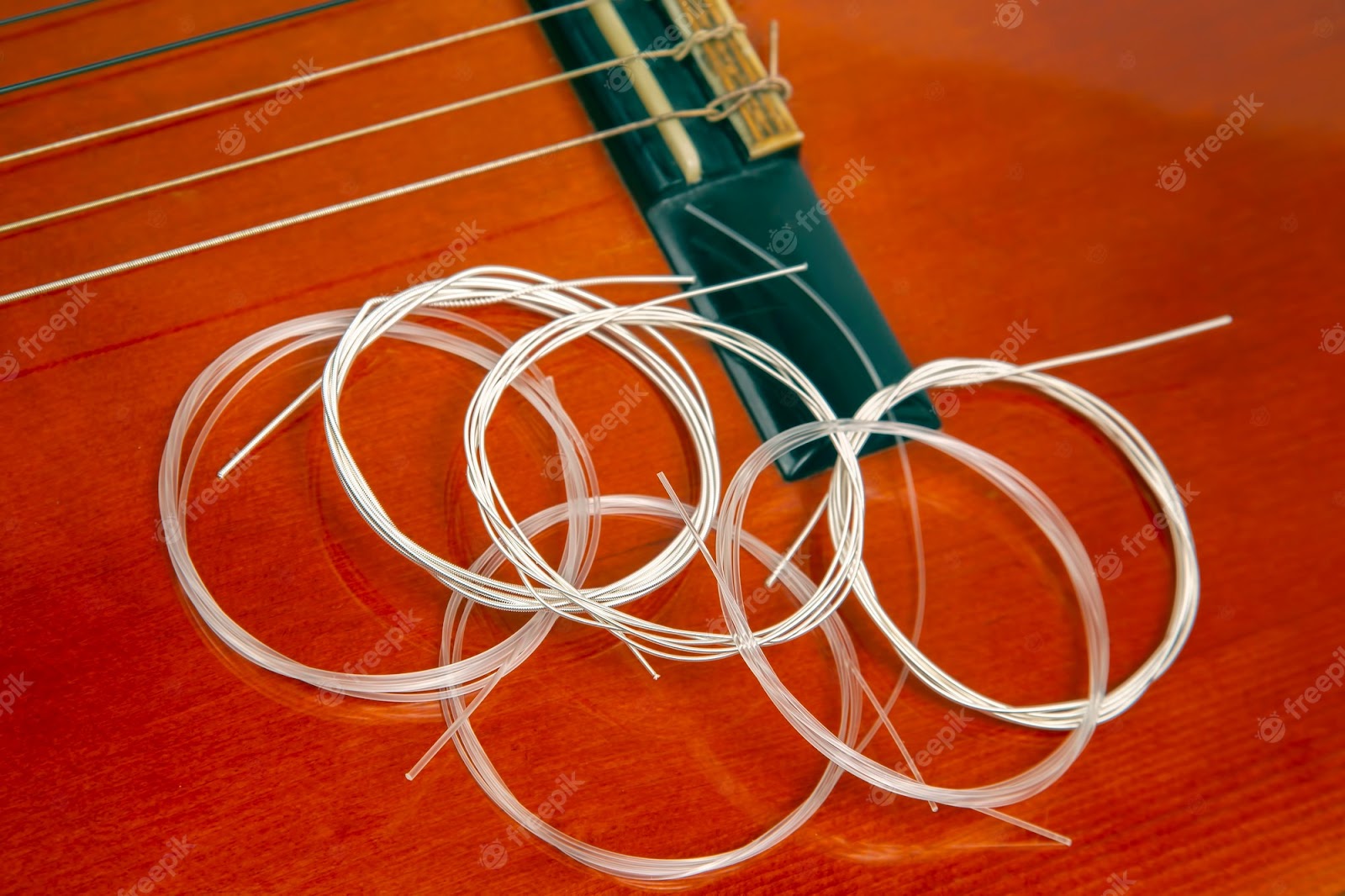
Nylon strings or classical strings are the preferred choice for nylon-string guitars or classical guitars. These guitars are designed to deliver a lighter sound and response, which is why pairing them with metal strings is a big no-no. The unique qualities of nylon strings are what make these guitars truly shine.
Interestingly, some artists have dabbled in experimentation by using nylon strings on their steel-string guitars. This unconventional approach can result in a softer and warmer tone, adding a distinct flavor to their music. However, it’s important to note that if you opt for nylon strings on your steel-string guitar, it will limit the versatility of the music you can play compared to using bronze or brass strings.
So, when it comes to choosing the right strings for your guitar, it’s essential to consider the instrument’s design and intended sound. Nylon strings are the perfect match for nylon-string or classical guitars, providing the desired lighter tone. If you’re feeling adventurous, exploring nylon strings on a steel-string guitar can bring a unique touch, but bear in mind the potential limitations in terms of musical range. Ultimately, finding the right strings for your guitar will ensure you can create music that resonates with your soul.
String Construction

The construction of guitar strings is just as crucial as their materials. It’s not just about what they’re made of; it’s also about how they’re put together. Each type of string has its gauge, string core, winding type, and coating, all of which contribute to its unique sound and response.
In other words, it’s not just a matter of steel or nickel, brass or bronze. The way the strings are crafted plays a significant role in determining their characteristics. These factors come together to give each string its distinct tonal qualities, and they can greatly impact how the string feels and performs when you play it.
So, when selecting guitar strings, it’s important to consider not only the materials but also the specific construction details. Finding the right combination of gauge, core, winding, and coating can help you achieve the desired sound and responsiveness for your playing style and musical preferences. It’s all about finding the perfect harmony between the materials and the construction techniques used in creating the strings.
Gauge
The gauge of a guitar string refers to its thickness, and it has a significant impact on the resulting sound. Generally, the thickness of a string determines the richness and fullness of the sound it produces. Thicker strings tend to create heavier, full-bodied notes, while thinner strings produce brighter and more tinny tones.
It’s important to note that the thickness of a string also affects playability. Thicker strings tend to be stiffer and harder to play, requiring more finger strength and exertion. On the other hand, thinner strings are easier to play, as they offer less resistance and require less effort to fret.
When it comes to gauges, thin strings usually start at .09 and below, while thick strings typically measure over .012. By selecting the appropriate gauge, guitarists can tailor the sound and playability of their instrument to suit their musical preferences and playing style.
Remember, finding the right balance between gauge and sound is key. It’s about striking a chord between the desired tone and the ease of playing, allowing you to express yourself freely and create music that resonates with your style.
String Core
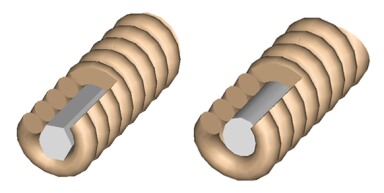
The string core refers to the shape of the guitar string, and it comes in two main types: round core and hex core. Each type offers distinct sonic characteristics.
Round core strings have a mellower tone, making them ideal for genres like blues or classic rock. They produce a warm and smooth sound that can add a touch of vintage flavor to your playing.
On the other hand, hex core strings are known for their louder and brighter qualities. They deliver a modern sound that works well for contemporary rock and metal styles. The hexagonal shape of the core contributes to their increased volume and sharper response, allowing your guitar to cut through the mix with precision.
Choosing between round-core and hex-core strings ultimately depends on the sound you want to achieve and the genre of music you primarily play. Round core strings bring a vintage vibe and mellower tones, perfect for blues and classic rock enthusiasts. Meanwhile, hex core strings offer a modern edge with their enhanced brightness and volume, making them a preferred choice for contemporary rock and metal players.
By understanding the differences in string cores, you can fine-tune your guitar’s sound to suit your musical preferences and genre of choice, allowing you to unleash your creativity and capture the perfect tone.
Winding Type
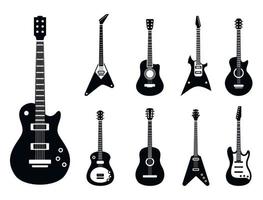
When it comes to modern guitar strings, there are three primary winding types to consider: roundwound, flatwound, and half-round. Each type offers its unique characteristics and is favored in different musical contexts.
Roundwound strings are the standard choice for most guitarists. They feature a round outer winding that provides a bright and vibrant sound. Roundwounds are versatile and commonly used across various genres, offering a well-balanced tone.
Flatwound strings, on the other hand, have a smooth and flat surface. This design gives them a distinct feel and produces a darker tone. Flatwounds are particularly popular in jazz music, as they offer a warm and mellow sound, making them well-suited for smooth, melodic playing.
Half-round strings offer a middle ground between roundwound and flatwound. They combine the brightness of round wounds with the smoother feel of flat wounds. These strings are often favored in modern genres, where players seek a balance between a bright and crisp tone and a comfortable playing experience.
By selecting the right winding type, guitarists can shape the sound and feel of their instrument to match their desired style and genre. Roundwound strings provide brightness, flatwound strings deliver a darker tone with a smooth texture, and half-round strings offer a compromise between the two. Exploring these different winding options allows you to find the perfect fit for your musical expression and personal preferences.
String Coating
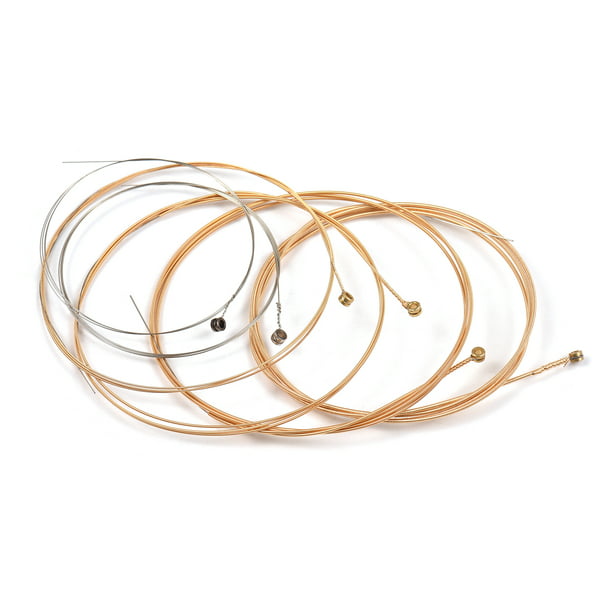
Typically, a standard guitar string is coated with a plastic polymer. This coating serves a couple of purposes. Firstly, coated strings have a longer lifespan compared to uncoated ones, making them more durable. Additionally, the coating can enhance the response of the strings, adding a heightened level of playability.
It’s worth noting that coated strings generally come at a higher price point due to their extended lifespan and improved performance.
Choosing the right guitar strings is a highly personal decision that can significantly impact your sound. The best approach is to experiment with different types of strings over time, exploring various options suitable for both electric and acoustic guitars. This process allows you to find the strings that complement the music you play and align with your preferred playing style.
Through trial and error, you’ll eventually discover your signature string—a perfect combination of material, gauge, core, and winding type that brings out the best in your sound. So, don’t be afraid to explore and try different strings to find the ones that resonate with you and elevate your musical expression.
Acoustic Guitar String Materials
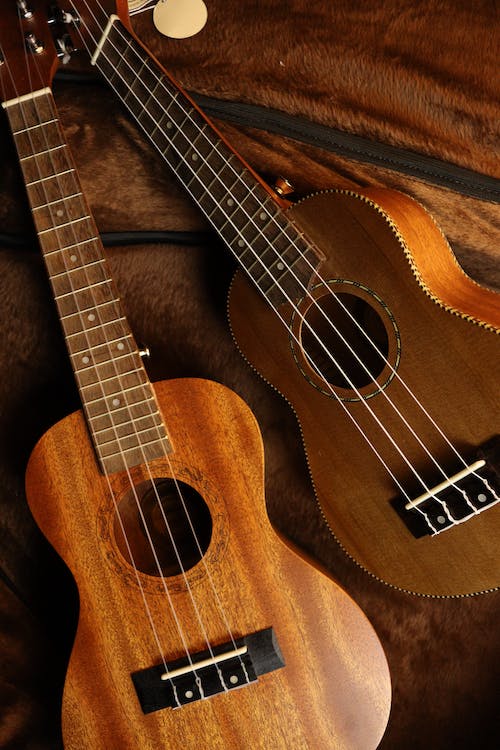
When it comes to acoustic guitar strings, there are primarily two main types: 80/20 bronze and phosphor bronze. However, a wide range of other alloys are available if you explore our extensive selection of acoustic guitar strings.
In the case of wound strings, they are typically constructed with an alloy wrapped around a steel core. On the other hand, plain guitar strings are commonly made from tin-plated steel, although other plating materials can also be found.
Interestingly, the term “80/20 bronze” is a bit misleading. Technically, it should be called “80/20 brass” since it consists of copper and zinc. However, this discrepancy is a topic for another discussion. Tonally, 80/20 bronze guitar strings offer a bright and sparkling tone that has been heard on countless records. However, one downside is that 80/20 bronze strings tend to oxidize relatively quickly, requiring more frequent string changes. These strings are particularly bright when brand-new, making them popular for dreadnoughts and large-bodied acoustic guitars.
Phosphor bronze guitar strings were developed in response to players’ demand for longer-lasting strings. They are primarily made of copper with 8-10% tin and a small percentage of phosphorus, although variations can be found among different brands. Strings made with this alloy offer a mellow tonal profile that remains consistent throughout the lifespan of the strings.
It’s important to note that 80/20 bronze and phosphor bronze are not the only options available. There is a multitude of string alloys to choose from, and at Sweetwater, we stock a wide variety. You can find strings made with aluminum bronze, nickel, Alloy 52, and many more!
With such a diverse selection, you have the opportunity to explore different string alloys and find the perfect match for your acoustic guitar, catering to your tonal preferences and playing style.
Electric Guitar String Materials
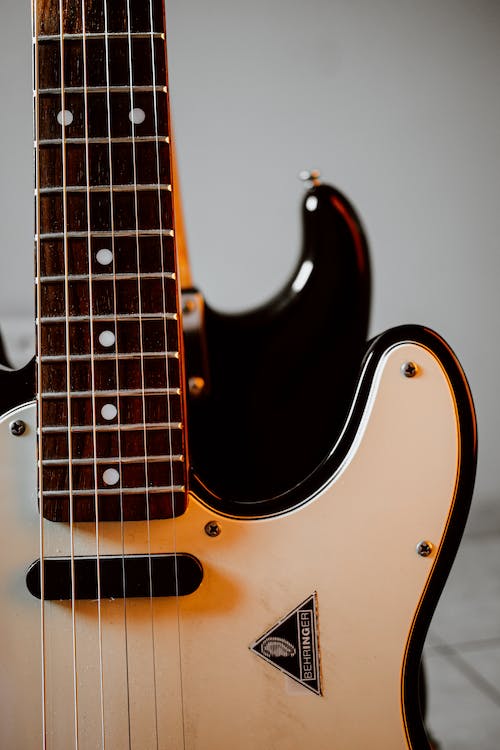
Similar to acoustic guitar strings, electric guitar strings also have steel cores. These cores are then wrapped with an alloy wire that determines the final tone. When players mention their preference for a specific string alloy, they are often referring to the composition and plating of the wrap wire rather than how it’s wrapped. Some brands have their proprietary formulations, while others rely on well-established materials.
One of the most popular types of electric guitar strings is nickel-plated strings. They feature a steel core wrapped with nickel-plated steel wire. These strings strike a perfect balance, providing a snappy attack and a smooth sound that modern players love. Nickel-plated strings are available in various sizes and configurations to suit every player’s needs.
For those seeking a warmer and creamier sound, pure nickel electric guitar strings are an excellent choice. These strings are made with 100% nickel wrap wire, which imparts a distinct tonal character different from other string materials.
Stainless steel, commonly associated with hardware and frets, can also be used in guitar strings. Stainless steel strings offer bright tones, especially when compared to pure nickel strings, and deliver plenty of snaps. They are highly resistant to corrosion, making them an ideal option for regular gigging or players with sweaty fingers.
However, steel and nickel are not the only options available for electric guitar strings. At Sweetwater, we offer more than a dozen alloys to experiment with. Some notable choices include cobalt, zinc-plated steel, and Superalloy. Each string set offers a unique feel and tonal profile, allowing you to create recordings that stand out from the rest.
With such a diverse range of string materials at your disposal, you can explore different tonal possibilities and find the strings that perfectly complement your playing style and musical vision.
FAQs
Are Guitar Strings Spring Steel?
The music wire is usually spring steel, which is highly carbonized.
What are Acoustic Strings Made Of?
It is possible to use acoustic guitar strings, either brass-plated or bronze plated. The wire is still fabricated in steel hence the term metal strings guitars. But brass and iron are distinct in voicing and responses. Brass string guitars are typically brighter than bronze strings.
What are the Ingredients in Guitar Strings?
Steel, nickel, and other alloys are used to make electric guitar strings. Steel is the most commonly used alloy for electric guitar strings. A metal core is wrapped in a metal coil to make guitar strings. Steel, nickel, and cobalt are the most often used metals for electric guitar stringing.
